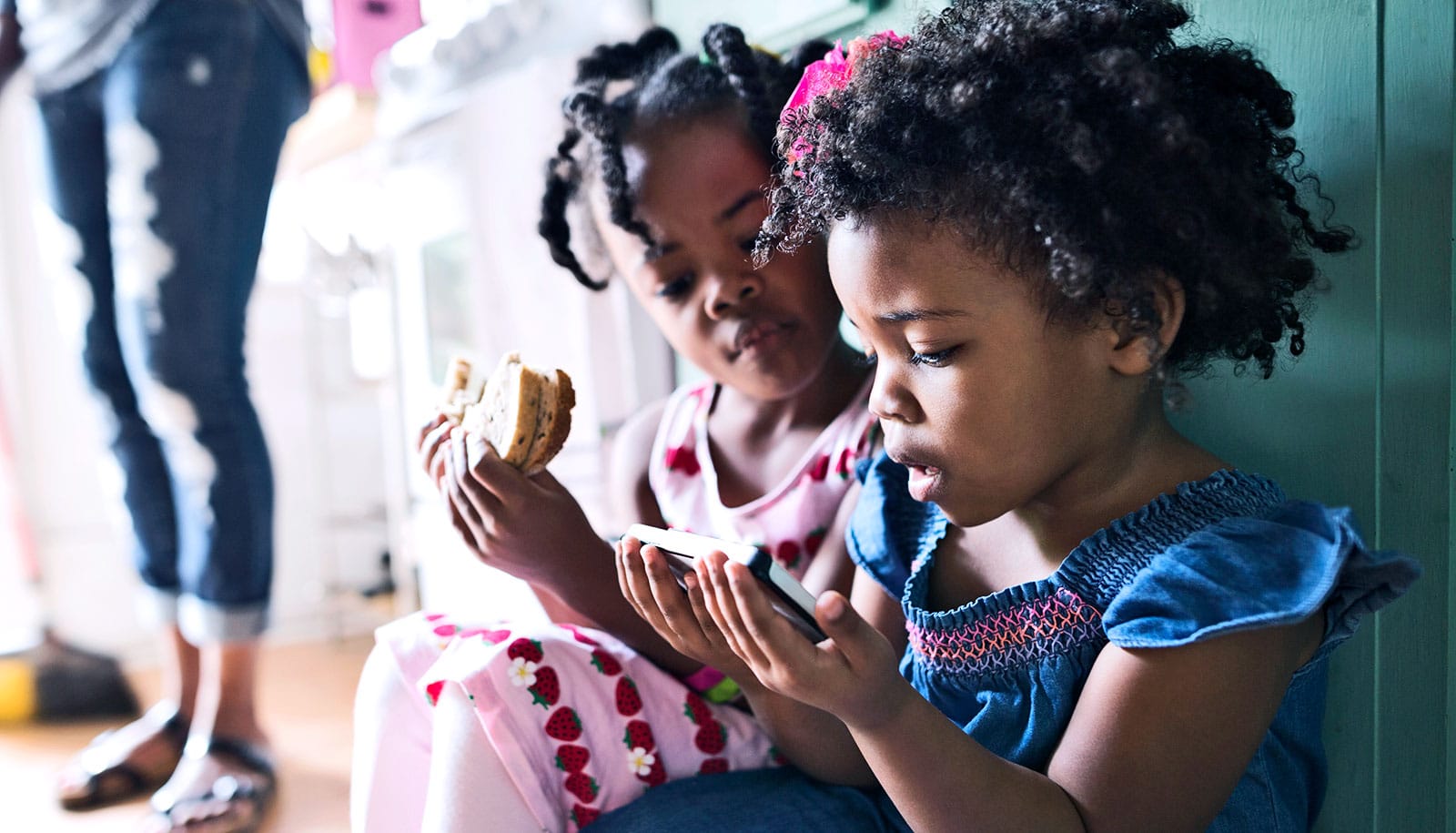The brains of toddlers resist learning from screens, even video chats, according to a new study, but having a parent present can help.
Previous research has shown that unlike older children, infants, and toddlers need responsive, face-to-face encounters with real, live humans in order to learn new information.
But researchers wondered about video chat. Can infants and toddlers learn from a person on a screen who, unlike a TV show or app, can call them by name and interact with them in real time?
For a new study in Developmental Psychology, researchers studied 176 toddlers in two age groups (24 months and 30 months) to see under which conditions they would best learn the name of a new object. The children in the study did not have prior experience with video chat.
The researchers selected a funny shaped object that they chose to name a “modi.” The goal was for the toddlers to learn the name of the object and put it in a bin.
The researchers studied them in four conditions:
- Responsive live: The person making the request was present and engaged with the child.
- Unresponsive video: The speaker on the screen looked at the camera and smiled at scripted times.
- Unresponsive live: Although present, the speaker behaved as she did on the unresponsive video.
- Responsive video: A speaker on closed-circuit video engaged with the child, just as they might on video chat.
Toddlers in both age groups reliably learned the toy’s name in the responsive live condition, and older toddlers learned in the unresponsive live condition. But neither group learned in either of the video conditions.
That’s because to toddlers, a flat image of a person on a screen isn’t “real,” so their brains tell them what they are seeing isn’t personally relevant and not something they can learn from, says Georgene Troseth, associate professor of psychology at Vanderbilt University.
Even though video chat includes more communicative social cues and interaction than a nonresponsive video, the medium still was not sufficient to support learning in the study.
Positive interaction with an adult—whether playing a board game, reading a book, or having screen time—is the best way for infants and toddlers to learn, Troseth says.
When adults use dialogic questioning—asking the child questions and inviting them to interject their own thoughts, feelings, and ideas—that’s when learning most likely happens.
Despite the findings, video chat may hold some promise for teaching toddlers, Troseth says. “Video chat is unique in that it allows children and the on-screen adult to coordinate their attention to share focus and interact in real time.
“So, it is possible that toddlers could learn to respond to and learn from video chat over time—but only if they have an adult present to support that learning.”
Additional coauthors are from Vanderbilt, the University of South Dakota, and the University of Delaware.
Source: Vanderbilt University



